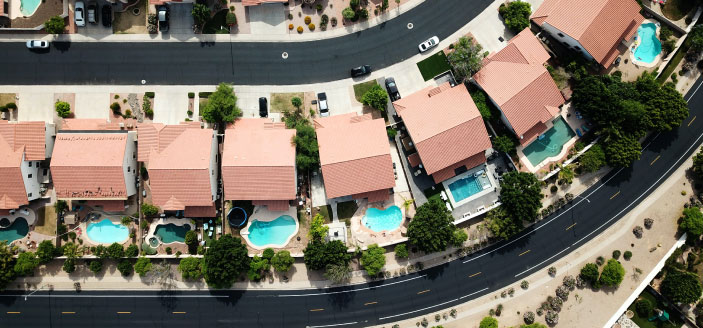05 Jan Regulation of self-catering accommodation

Regulation of self-catering accommodation
by George Coucounis
“Their registration in the register of the Deputy Ministry of Tourism contributes to the control of their operation and the collection of taxes”
The availability of self-catering accommodation for short-stays serves a number of guests who choose this type of accommodation, either for holidays or for work, both from Cyprus and abroad. It is now considered a social necessity that satisfies simplicity, quietness, privacy and certainly cheap accommodation. Some establishments are very attractive because of their location and the amenities they offer and are appealing to many visitors who want to experience luxuries that their own home does not provide. The combination of the availability of tourist furnished villas, individual houses and apartments, both in tourist areas around town and in rural or special interest areas, revitalises and enhances the tourist product of our country, covers closed areas, provides employment and helps the local economy. The advertising and promotion of their availability through well-known successful platforms provides each interested party the opportunity to choose the establishment, in a quick and easy way, safely. Guests’ comments about their experience during their stay in the accommodation is a kind of evaluation that helps interested guests to decide whether or not to book it.
The demand for self-catering accommodation is increasing year by year and the State through the Deputy Ministry of Tourism, has deemed it necessary to regulate the establishment and operation of self-catering accommodation in order to control the industry, collect taxes and protect the public. In fact, the Government has given enough time to accommodation providers to register their establishments in the register which had been created for this purpose, rendering such registration mandatory by law; the grace period for registration expires on February 6, 2023. The registration fee for each accommodation is €222 per three years and self-catering accommodation is divided into three categories, namely tourist furnished villas, tourist furnished houses and apartments. Upon registration, the establishments are granted with a special mark and a registration number is assigned thereto from the Deputy Ministry of Tourism. Such special mark and registration number is listed on every platform where the accommodation is advertised and should appear in all related transactions.
The relevant piece of legislation is the Regulation of the Establishment and Operation of Hotels and Tourist Accommodation Law, L. 9(I)/2020, and its amending law L.7(I)/2022. Part IIIA of the Law prohibits an owner or provider of an online platform from advertising and/or posting accommodation that has not secured a registration number as above provided. Notably, revenues from the rental of self-catering accommodation are subject to Income Tax and VAT based on the provisions of the respective applicable laws, as well as to overnight fees payable to local authorities, municipalities and community councils.
The owner, or alternatively the beneficial occupier or entrepreneur seeking to engage into the rental of self-catering accommodation upon receipt of the prior approval or authorisation of the property owner, is obliged to submit the corresponding application to the Deputy Ministry of Tourism depending on the type of accommodation in issue along with a declaration, as well as pay to the Deputy Ministry the applicable registration fee assigned per category of accommodation. The declaration serves the purpose of confirming the registration with the Tax Department and the provision of the tax and/or VAT identification number of the owner or manager, the relevant details of the self-catering accommodation and its minimum technical and operational specifications, as well as the applicable insurance policy covering against all risks, fire and public liability.
Upon registration of the accommodation in the Register of Self-Catering Accommodations, the Deputy Ministry of Tourism issues the aforesaid special mark and registration number. The first registration permit is valid for three years commencing from the date of its issuance. The registration permit is renewable every 3 years upon payment of the applicable renewal fee within 3 months prior to the expiry of the last permit. The Deputy Ministry of Tourism is authorised to use information pertaining to self-catering accommodation either for statistical purposes or for the purpose of promoting the country’s tourist infrastructure.
The Deputy Ministry of Tourism may carry out an ex-officio inspection of a self-catering establishment at any time for the purpose of verifying the existence of the necessary permit and the compliance of the establishment with the conditions imposed for registration. The permit may be revoked in the event that it was secured on the basis of false or misleading information, or in the event that it ceased to be in business, or if the necessary registration licence details have not been renewed. Furthermore, the permit may be revoked in the event that the operator is convicted of serious offences relating to safety and health at work or offences relating to drugs, domestic violence, trafficking and exploitation of persons or other serious criminal offences specified in the Law, or alternatively in the event that an injunction was issued for the cessation of the accommodation’s operation or the accommodation is found to be in continuous violation of the law.